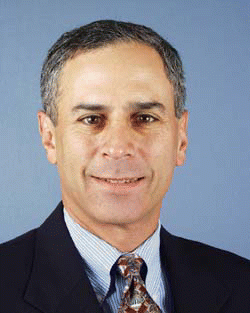Patients need to be informed about what to expect. Unrealized expectations are the major complication of superficial procedures, he said.
Explore This Issue
March 2007Physicians who perform superficial cosmetic procedures need a thorough grounding in the basics-not just a weekend training, Dr. Hilger said. They need to learn the anatomy and physiology of the face and have an understanding of aesthetics. They should understand the uses of various techniques and the different products. For example, Botox is good for dynamic wrinkles, whereas fillers should be used for static wrinkles.
The goal is to make people look better. Just making lips bigger could make a person look weird, depending on the patient’s face, Dr. Hilger said.
Equally important is being able to recognize and manage complications. Just because someone is a medical doctor does not mean that he or she can do these procedures in a responsible way without proper training. I delivered babies in medical school. Now I wouldn’t consider doing that, Dr. Hilger said.
Public Education
Dr. Moran advocated public education by facial plastic surgeons about their practices and their qualifications for the procedures they perform, without badmouthing other physicians. She said that patients need to know that a ‘bargain’ is usually no bargain. In her marketing materials, she lists her qualifications and emphasizes that she performs all the procedures herself. She noted that AAFPRS and ABFPRS have issued calls to action regarding this issue.
Dr. Baker agreed that public education is the best approach. The public should know what board certification means. ABFPRS already has educational efforts in place, he noted.
Dr. Papel has a different viewpoint. It’s not a problem for my practice. I can’t argue with any doctor who takes the time to learn a superficial procedure and then offers it to patients. Most practicing physicians [in any specialty] do not learn about Botox and fillers in their residence programs, he said.
Dr. Weiss, the dermatologist, said that tighter state regulations are needed regarding which practitioners can legally perform cosmetic procedures. She finds the growing trend of medical spas worrisome, because often the medical director is not on site and does not see patients prior to having procedures done by others, at times cosmeticians. The state of Florida recently passed legislation limiting the number of spas a physician could direct, as well as setting geographic limits as to how far away the medical director could be from the facility. Other states should follow suit, she said.

Leave a Reply